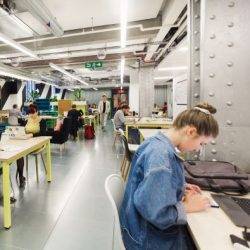July 14, 2017
Large majority of working mothers cut short maternity leave over job fears
 New research claims that just 12 percent of working mothers take a full year’s maternity leave and almost one in five (18 percent) take four months or less. The research claims that almost half (44 per cent) of working mothers were unhappy with how they had been treated by their employer during their pregnancy and after their return to work. While many mothers return for financial reasons or simply because they want to, many worry about being side-lined, edged out or feel pressure from their boss to go back. The survey of 2,000 working mothers by law firm Slater and Gordon found that almost a third (30 percent) felt their managers wouldn’t have supported them staying off for any longer, and thirty-nine per cent weren’t sure their job would be waiting for them when they went back.
New research claims that just 12 percent of working mothers take a full year’s maternity leave and almost one in five (18 percent) take four months or less. The research claims that almost half (44 per cent) of working mothers were unhappy with how they had been treated by their employer during their pregnancy and after their return to work. While many mothers return for financial reasons or simply because they want to, many worry about being side-lined, edged out or feel pressure from their boss to go back. The survey of 2,000 working mothers by law firm Slater and Gordon found that almost a third (30 percent) felt their managers wouldn’t have supported them staying off for any longer, and thirty-nine per cent weren’t sure their job would be waiting for them when they went back.








 Emerging technologies such as artificial intelligence, robotics, virtual reality, augmented reality and cloud computing, will transform our lives and how we work over the next decade; and by 2030 every organisation will be a technology organisation. As such businesses need to start thinking today about how to future-proof their infrastructure and workforce, according to a report published by Dell Technologies. The research, led by the Institute for the Future (IFTF) alongside 20 technology, academic and business experts from across the globe also offers insight on how consumers and businesses can prepare for a society in flux. ‘
Emerging technologies such as artificial intelligence, robotics, virtual reality, augmented reality and cloud computing, will transform our lives and how we work over the next decade; and by 2030 every organisation will be a technology organisation. As such businesses need to start thinking today about how to future-proof their infrastructure and workforce, according to a report published by Dell Technologies. The research, led by the Institute for the Future (IFTF) alongside 20 technology, academic and business experts from across the globe also offers insight on how consumers and businesses can prepare for a society in flux. ‘






 Three quarters (75 percent) of businesses expect to increase the number of high-skilled roles over the coming years, but 61 percent fear that there will be a lack of sufficiently skilled people to fill them. This is according to the 2017 CBI/Pearson Education and Skills Survey which highlighted that 62 percent see strong competition for candidates with appropriate qualifications as the most widespread cause of skills shortage, followed by a lack of candidates with appropriate qualifications (55 percent). According to the report, while the Brexit debate generates plenty of heat, ‘it’s the white heat of technological change that will mean huge change to the jobs of 2030’. Add that to the obvious question about what skills we’ll need to ‘home grow’ in the absence of free labour movement, and the skills gap is brought into sharper relief argues the report.
Three quarters (75 percent) of businesses expect to increase the number of high-skilled roles over the coming years, but 61 percent fear that there will be a lack of sufficiently skilled people to fill them. This is according to the 2017 CBI/Pearson Education and Skills Survey which highlighted that 62 percent see strong competition for candidates with appropriate qualifications as the most widespread cause of skills shortage, followed by a lack of candidates with appropriate qualifications (55 percent). According to the report, while the Brexit debate generates plenty of heat, ‘it’s the white heat of technological change that will mean huge change to the jobs of 2030’. Add that to the obvious question about what skills we’ll need to ‘home grow’ in the absence of free labour movement, and the skills gap is brought into sharper relief argues the report.
 Acas’ helpline receives many callers working on a zero hours, agency or self-employed arrangement who do so out of necessity rather than by choice, with some people feeling taken advantage of and unfairly excluded from employment rights. In its response to the Matthew Taylor review on modern employment practices the Acas Council looked at calls to its employment helpline, which revealed confusion and uncertainty around employment status and rights for those involved in the non-standard types of working. Prompted by evidence that these types of working arrangements are on the rise Acas has also published a new discussion paper on non-standard or ‘atypical’ forms of work, and identifies areas where good practice can be encouraged and improved. The discussion paper, Ain’t that typical? Everyday challenges for an atypical workforce, also reveals that the practice of ‘zeroing down’ workers’ hours is used in some workplaces to discourage staff from raising concerns or asserting rights.
Acas’ helpline receives many callers working on a zero hours, agency or self-employed arrangement who do so out of necessity rather than by choice, with some people feeling taken advantage of and unfairly excluded from employment rights. In its response to the Matthew Taylor review on modern employment practices the Acas Council looked at calls to its employment helpline, which revealed confusion and uncertainty around employment status and rights for those involved in the non-standard types of working. Prompted by evidence that these types of working arrangements are on the rise Acas has also published a new discussion paper on non-standard or ‘atypical’ forms of work, and identifies areas where good practice can be encouraged and improved. The discussion paper, Ain’t that typical? Everyday challenges for an atypical workforce, also reveals that the practice of ‘zeroing down’ workers’ hours is used in some workplaces to discourage staff from raising concerns or asserting rights.
 Britain’s most family friendly and flexible employers have been recognised in this year’s Top Employers for Working Families Awards. Now in their 8th year, the annual Top Employers for Working Families Special Awards from the UK’s work life balance charity cover 11 categories across a range of work life policies and practices. Four new sector-specific awards are being introduced this year for the private, public and third sectors; as well as a category for small employers. Sarah Jackson OBE, chief executive of Working Families, said: “In many ways, flexible working and family friendly working have never been more part of the bloodstream of British business. We had a record-breaking number of entries this year, showcasing a wealth of exciting approaches to creating agility in the workplace. Congratulations to all this year’s Top Employers for Working Families award winners, singled out because they offer leading flexible workplaces that support the grain of their employees’ lives. I look forward to working with them to make work work, for people, families and the economy, so that families thrive and business prospers.”
Britain’s most family friendly and flexible employers have been recognised in this year’s Top Employers for Working Families Awards. Now in their 8th year, the annual Top Employers for Working Families Special Awards from the UK’s work life balance charity cover 11 categories across a range of work life policies and practices. Four new sector-specific awards are being introduced this year for the private, public and third sectors; as well as a category for small employers. Sarah Jackson OBE, chief executive of Working Families, said: “In many ways, flexible working and family friendly working have never been more part of the bloodstream of British business. We had a record-breaking number of entries this year, showcasing a wealth of exciting approaches to creating agility in the workplace. Congratulations to all this year’s Top Employers for Working Families award winners, singled out because they offer leading flexible workplaces that support the grain of their employees’ lives. I look forward to working with them to make work work, for people, families and the economy, so that families thrive and business prospers.”


 One in three (34 percent) UK workers are dealing with anxiety, depression or stress, which is affecting their ability to carry out their day-to-day roles, claims a new report. Two in five (39 percent) have taken time off work or reduced their responsibilities because of their health, and of those, 39 percent did not feel comfortable telling their employer about the issue according to the PwC research. Nearly a quarter (23 percent) think their organisation does not take employee wellbeing seriously and more than half (54 percent) work for companies which do not offer health benefits such as counselling, health screening and subsidised gym memberships. The research suggests that Health and wellbeing has a significant impact on performance with four out of five workers (83 percent) believing that their wellbeing influences how productive they are. Pressures such as dealing with customers and clients, and long hours have the biggest impact on workplace wellbeing. The survey respondents also indicated a belief that technology can play a part in addressing health, with almost half saying they would be open to using an app to improve their wellbeing.
One in three (34 percent) UK workers are dealing with anxiety, depression or stress, which is affecting their ability to carry out their day-to-day roles, claims a new report. Two in five (39 percent) have taken time off work or reduced their responsibilities because of their health, and of those, 39 percent did not feel comfortable telling their employer about the issue according to the PwC research. Nearly a quarter (23 percent) think their organisation does not take employee wellbeing seriously and more than half (54 percent) work for companies which do not offer health benefits such as counselling, health screening and subsidised gym memberships. The research suggests that Health and wellbeing has a significant impact on performance with four out of five workers (83 percent) believing that their wellbeing influences how productive they are. Pressures such as dealing with customers and clients, and long hours have the biggest impact on workplace wellbeing. The survey respondents also indicated a belief that technology can play a part in addressing health, with almost half saying they would be open to using an app to improve their wellbeing.










July 13, 2017
What we may be missing about IBM’s decision on flexible working 0
by Gary Chandler • Comment, Flexible working, Property, Workplace design
(more…)